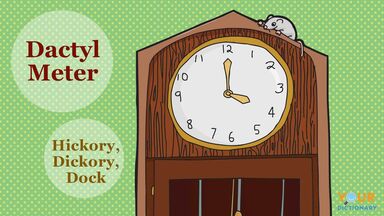Rhyme Definition
Correspondence of sound between stressed syllables at the ends of words or lines of verse; specif., perfect rhyme.
(linguistics) Rime.
- order or sense
Idioms, Phrasal Verbs Related to Rhyme
Origin of Rhyme
-
The noun derives from Middle English ryme, rime (“number, rhyme, verse"), from Old English rÄ«m (“number, counting, reckoning, calendar, numeral, sum, aggregate, value, enumeration, series"), from Proto-Germanic *rÄ«mÄ… (“calculation, number"), from Proto-Indo-European *hâ‚‚rey- (“to regulate, count"). Cognate with Old Frisian rÄ«m (“number, amount, tale"), Old High German rÄ«m (“series, row, number"), Old Norse rím (“calculation, calendar"), Middle Low German rÄ«m (“rhyme"), Dutch rijm (“rhyme"), German Reim (“rhyme"), Swedish rim (“rhyme"), Icelandic rím (“rhyme"), Old Irish rÄ«m (“number"), Welsh rhif (“number"), Ancient Greek ἀριθμός (arithmós, “number"). Meaning influenced in Middle English by Old French rime (“rhyme"), from the same Germanic source.
From Wiktionary
-
Alteration (influenced by rhythm) of Middle English rime from Old French of Germanic origin ar- in Indo-European roots
From American Heritage Dictionary of the English Language, 5th Edition
-
The spelling has been influenced by an incorrectly assumed relationship with rhythm.
From Wiktionary
Find Similar Words
Find similar words to rhyme using the buttons below.





